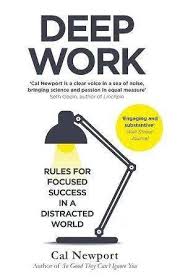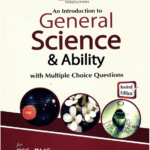Description
12 Rules for Life: An Antidote to Chaos” is a product of the toil of Jordan B. Peterson, a renowned Canadian psychologist and professor, written down in 2018. In it, using practical advice born from years spent studying psychology, philosophy, and religious thought alongside his personal anecdotes and reflections on human behavior, Peterson will help readers work through life’s chaos and suffering to foster responsibility, meaning, and stability in their lives.
Over-view of Key Themes
The central idea of “12 Rules for Life” is that life itself is nasty, brutish, and short, but if humans can embrace the principles of order, responsibility, and meaning, the lives of humans and of other people can be made far better. For Peterson, personal growth is the process of learning to meet and overcome necessary challenges of life rather than trying to avoid them. Here are main themes with a very brief outline of the rules in the book:
1. Order vs Chaos
Peterson constantly keeps them on a tight leash-two-part life, but he warns in his cautionary remarks that overabundance of chaos can cause anxiety and fear plus suffering. The goal is the attainment of balance between order and chaos for meaningful life.
Order: Familiarity and routine systems. It is “systematic.”
Chaos: The unknown, unpredictability, and change.
2. Responsibility vs Meaning
One of the major themes in the book is responsibility. Peterson writes, “Meaning is when you take responsibility for yourself, for others, and for the world.” In essence, the carrying of burdens and the surmounting of obstacles give people direction in their lives.
Takeaway: When one shies away from responsibility, suffering and a lack of purpose ensue; in contrast, embracing responsibility leads to a fulfilling and productive life.
3. Human Nature and Psychology
Drawing from psychology, religion, and mythology, Peterson addresses what is essentially humanity-nature: morality and behavior. He contemplates stories and archetypes which one can find in religious texts, in particular, the Bible, and draws parables between ancient wisdom and modern psychological principles.
Mythology and Religion : Peterson constantly appeals to stories from the Bible, Greek mythology, and Jungian archetypes to describe human behavior and values.
The 12 Rules
Stand up straight with your shoulders back
Peterson’s first rule is based on evolutionary biology and psychology, stating we stand tall in confidence as it shows a readiness for battle. It encourages people to take a position like they are superior while showing confidence, which helps their thoughts and relationship with others.
Key Take-Away: The posture we use will shape how others treat us as well as how we perceive ourselves.
Treat yourself like someone you are responsible for helping
People love others better than they care for themselves. The principle teaches people to treat themselves the same way they would treat a loved person.
Take good care of your health and body and regard yourself as you would someone you cared for.
Be with friends who would want the best for you.
Surround yourself with people who actually want you to be good at things and grow. Poisonous relationships do not help a person develop, but supportive ones work as catalysts for motivation.
Key Take-Away: hang around with friends that make you better, not worse.
Comparison: compare yourself against who you were yesterday, not who somebody else is today.
Instead of measuring oneself against others, which is bound to result in inferiority complex or jealousy, Peterson encourages self-growth towards being a better version of himself.
Keystone Idea: You ought to better than you were yesterday.
Do not let your children do anything that would make you dislike them
This principle declares parenting. According to Peterson, teaching your child proper behavior and disciplining that behavior is of utmost importance so that he or she remains a well-adjusted adult later in his or her life.
Key Idea: The child needs to be taught to discipline and shape behavior so that he can move amidst society.
Set your house in perfect order before you criticize the world
Petron gives the world a tremendous homework assignment: clean up your own life and around you before trying to clean up the world. Personal problems need to be addressed and life needs to be made more organized before tackling the big issues in society.
Main Takeaway: Clean up your own life before looking at flaws in the world around you.
Meaningful, not Expedient
He wants meaning, not pleasure or gratification.
Purposeful objectives may take longer to attain but they ultimately “satisfy and fulfill”
Principal Lesson: Trade comfort and effortless windfalls for meaning and responsibility
Be truthful- at least, not deceitful
It’s a main tenet of Peterson’s philosophy: lying creates mess, muddle, and inner conflict; seeking truth brings order and clarity.
END.
Key Takeaway: Integrity is the basis of trust, candor, and a good life.
Consider that the man speaking might know something you don’t
This precept instructs one to listen in humility. Peterson tells the reader to engage in conversations with his head and heart open, ready to learn from other people.
Key Takeaway: Humble listening is illuminating and a way of being with others deeper.
Be clear in your speech
To avoid misunderstandings and face issues frontally, one must be clear and specific while communicating. Indistinct or ambiguous creates confusions and problems that can never be solved.
Key Idea: Clarity in language exemplifies clarity in thought, and things can be handled more effectively .
Don’t disturb the children skateboarding
In this dictum, Peterson uses skateboarding as a metaphor for the risks young people must take to grow and develop resilience. According to him, overprotection kills independence and personal development.
Key Idea: Let people-children, in particular-get hurt by taking risks as necessary to their growth.
Pet a cat when you encounter one on the street
This concluding rule reflected how suffering was inevitable and, thus prompted the reader to find the presence of moments of happiness and peace amidst the turmoil. It reminded people to appreciate the present.
Key Idea: People in a time of trouble should find solace in simple pleasures and peaceful moments.
Conclusion
It is a book of combining personal self-help advice with philosophy and psychology and Peterson’s reflections about the complexities of life-it calls for personal responsibility and discipline, giving a push to human existence where the individual would pursue meaning within a suffering-filled world amidst chaos. Peterson’s rules are made to provide individuals with strength, resilience, and a purpose for life to face the challenges, after which one can create order in themselves as well as their surroundings.










Reviews
There are no reviews yet.